The Startup Commons tech team is happy to update the open standard data model to version 0.2.0 to aggregate and distribute startup events data.What's new?
Usage
If there is a data model you would like us to improve or add, leave your request here and we will review to add it to our development plans to make it ecosystemOS compliant for global connectivity with other ecosystems. Or you can also subscribe to our ecosystemOS newsletter to keep you updated about the new data model releases.
Startup Commons releases version 0.1.0 of the open standard data model starting with events domain5/5/2021 Startup Commons just released the first open standard data model to aggregate and distribute startup events data. One of the benefits of working in the innovation entrepreneurship landscape globally for many years is to identify best practices, common patterns and needs coming from all kind of ecosystem maturity levels, recognising opportunities and giving us the chance to focus on things that others are not really providing, where our ecosystem development expertise matter the most. And the truth is that, while ecosystem builders and actors alike recognise and agree the ecosystem fragmentation as a big issue that must be resolved to enable true collaboration and accelerate ecosystem development, in practice, none is committed to fix it. The beast is so big that it seems it is "smarter" to just escape from it. But the beast doesn't stop growing more and more because we also contribute to make it bigger with our own ambitions and motivations. We are always asking entrepreneurs to be leaders to make their companies succeed. Shouldn't we ask ecosystem builders and related actors to also behave as entrepreneurs? Shouldn't they have the guts to put the right things in place to make their ecosystem easier for anyone to land, navigate, connect and progress? In practice, there is a lack of true leadership to really tackle the ecosystem fragmentation. At the end of the day, as anything, it is a personal decision and we can't do much on this. We can just make one thing: leading by example. Taking the global leadership to develop what is needed to enable ecosystem connectivity and interoperability within and between ecosystems. Taking The First Step Ecosystem fragmentation in practice means that we have applications (spreadsheets, CRMs, event systems, portals, etc.) with closed databases, where people put information in and pull information out, and whatever information is randomly shared, it is not connected in a systematic and consistent way. We have applications silos, meaning that people need to proactively move information between systems. At the core, the solution for ecosystem fragmentation lie the data model, which is the way elements of data are organized and therefore standardise how they relate to one another and to the properties of real-world entities. Therefore data modelling is the first step towards removing ecosystem fragmentation and definitely to look at data as a key resource in the digital revolution to bring more efficiency at ecosystem level: designing a data model for information ecosystem. A model for what data and how is it stored & used. But being developed as open standard to facilitate easier, faster and broader adoption, to improve information transfer and usage and ultimately increase innovation. What's coming? From now on, we are making public the Roadmap for Open Standard Data Model, covering domains and objects that are part of the innovation entrepreneurship landscape, providing details about entity types, attributes, relationships, integrity rules, and the definitions of those objects so that any ecosystem can iteratively use them for:
A first use case enabled with this first simple model is a global startup events portal to aggregate and distribute startup events data. It provides a standards-based representation that can be used to encode and exchange events data in the context of innovation entrepreneurship format.
if there is a data model you would like us to improve or add, leave your request here and we will review to add it to our development plans to make it ecosystemOS compliant for global connectivity with other ecosystems. Or you can also subscribe to our ecosystemOS newsletter to keep you updated about the new data model releases. We are right now in that technological leap similar to the one that occurred when the car was invented that drastically changed the mobility of people. We are right at that moment where the way in which innovation and entrepreneurship is facilitated is going to change. Are you going to stay behind? Take action now! Startups having the right advisors essentially raise more money and grow faster. Boardio is a digital service connecting companies with advisors and board members.Boardio connects companies with skilled individuals available for advisory work. Boardio has a global pool of 3100+ candidates with skills and availability for advisory and board positions. Companies needing external advisors can post a recruitment ad for free and let interested advisors apply. Companies can also browse advisor base and contact the ones that seem to have skills needed. Tuomo Virkkunen, founder of Boardio, covered in the Startup Commons Innovation Entrepreneurship Best Practices Webinar Series the benefits of using external advisors, introduced Boardio service, made a demo and told how accelerators and other ecosystem players can utilize Boardio to help companies within the ecosystem to succeed. Get a quick understanding of Boardio here.
Venture Capital Investment is inefficient, biased with a very high failure rate. This issue is very well documented. Kiota as a platform allows all VCs, Investors to use unbiased, big data, using robust AI by academically validated knowledge to assess project investment.Early stage startup analysis is complex and 70%+ of investments fail. Emphasis has always been put on TEAM is key, but to date no one addressed the big question of how do you measure team, compatibility, performance, experience, passion and vision. Kiota is SaaS that allows investors of all type to analyse key metrics such as team, passion, vision and provides an in depth report with survival expectation, growth potential, valuation score and much more to investors. Entrepreneurs can also self analyse their investment readiness by going through the process. Kiota presented in the Startup Commons Innovation Entrepreneurship Webinar series how to help investors to analyse startups and scale ups by using robust artificial intelligence algorithms, and providing predictive capacity. Get a quick understanding of Kiota here.
Early stage startup analysis is complex and 70%+ of investments fail. Emphasis has always been put on TEAM is key, but to date no one addressed the big question of how do you measure team, compatibility, performance, experience, passion and vision. On April 1st 2021 at 2.30 PM EET, Raul Estrada, CEO of Kiota, and Ali Parandeh, COO of Kiota, will present the Kiota SaaS product that allows investors of all type to analyse key metrics such as team, passion, vision and provides an in depth report with survival expectation, growth potential, valuation score and much more to investors. Entrepreneurs can also self analyse their investment readiness by going through the process.
The target group is especially Business Angels, Incubators, VCs as well as Entrepreneurs (free gift for entrepreneurs at the end). In the end of the session, there will be Q&A and experiences sharing from other ecosystem actors. Don't miss it out and book your place! Feel free to contact us (info@startupcommons.org) in advance with your questions/suggestions. And meanwhile, reach out to us if you have any questions or concerns. This webinar is a continuation of the "A Modern Technology Stack For Startup Ecosystem Orchestration" webinar we organised on February 16 in which we presented the conceptual model for next generation startup ecosystem development technology architecture. This time, we are presenting the set of tools that are part of ecosystemOS stack to initiate the journey towards managing ecosystem data as a key resource. Valto Loikkanen, senior advisor and cofounder of Startup Commons, will run the session, guiding participants through the following topics:
This webinar is intended for digital government leaders, IT development teams working for economic development agencies, managers, architects and engineers therein and other interested public servants as well as private sector partners and academia. Feel free to contact us (info@startupcommons.org) in advance with your questions/suggestions. Can't make it? No problem! Go ahead and sign up. We'll send the recording to everyone who registers for the event.
Both Global Enabler and Startup Commons believe that supporting innovation entrepreneurship is the best way to solve the problems that the world has and are worthwhile to be solved. Understanding one common global challenge around the need for Financiers and Founders to find new methods and instruments to build trust with each other but also to improve the matchmaking process, we also believe and share that unlocking data and building data-driven approaches are key to enable this new model and eventually bringing more efficiency to the process of evaluating and scoring companies. We presented HippoRadar, a digital tool to enable financiers and ecosystem actors alike to reliably and efficiently evaluate and rate companies for funding and support. Get a quick understanding of HippoRadar here.
Since 2013, Startup Commons has been focusing on helping cities, regions and countries put zero barriers in the way of entrepreneurs, innovators and job creators, becoming a strong but neutral partner for strategic execution to empower and enable local and business vertical ecosystems key private & public actors in designing, implementing and operating local ecosystems, contributing to the development of related economies and societies. Being no surprise to anyone, the year 2020 has been globally unique due to COVID19, where the effects on the market have been significant in many ways. One of them is that there has been a significant increase in the use of digital services and practices, and the perception of the benefits and new opportunities that come with their use. Essentially because in practice this pandemic showed the vulnerability of local startup ecosystems where a lot of the activities and services are based on the physical networking of people, often through various events, training, etc., which practically ended completely when meetings could no longer be arranged. In this new awakening era, there has been a clear recognition around the need to build and develop ecosystems in a different way with similar outcomes through the support of digital. As a result, ecosystem stakeholders (governments, ecosystem builders, support functions, private companies, investors and other stakeholders) are asking for more data, how to access high quality data, its utilisation and automation. Data at the coreTowards the end of 2020, driven by all these market changes and acceleration of all digital aspects in the markets, we made the strategic decision of putting data science at the core to unlock the predictive value of data generated by ecosystem actors and platforms to help ecosystem users navigate easier and faster within and between ecosystems and eventually help orchestrate to improve efficiency and strengthen the startup ecosystem as a whole, link ecosystem actors and improve decision making. Oscar Ramirez, cofounder and CEO of Startup Commons said, “We are just in the beginning of this new paradigm for ecosystem development. And the new tech stack we are proposing will be a true catalyst for change that will help solve the ecosystem challenges with technology”. As a consequence of the great prominence of digital, we decided to reorganize our activities into a new company, Digiole Oy. With digital DNA and born-global by design, Digiole encapsulates 12+ years of innovation entrepreneurship ecosystem development expertise to deliver digital services for globally crossing business vertical ecosystem development and also development of digital platform economy, platforms & digital ecosystems for international private companies. Digiole will unveil in its next webinar on March 9th the TechStack for digital ecosystem development: ecosystemOS, a set of technologies an ecosystem uses to build an open, connected and scalable ecosystem that serves all ecosystem players and stakeholders as a platform to smartly drive innovation. It is a combination of programming languages, frameworks, libraries, patterns, servers, UI/UX solutions, software, data models and tools used by its developers. On the other hand, Startup Commons will continue its operations focused on local and geographically focused ecosystem development needs, often driven by public sector and non profit activities in the early part of the startup journeys, and using these experiences and related knowledge to make them open and free for everyone to remove all kinds of knowledge barriers and limitations in order to empower people and organisations towards building a more vibrant business environment for entrepreneurs, startups and SMEs in general, and also for individuals to create new opportunities, jobs and new businesses. This new strategic shift will further enable us to also better support all of our open source services and offerings and also gives room for future shareholders, and investors to join us going forward. Innovation Entrepreneurship Content Fitting Your NeedsFollowing today's announcement, this reorganisation of activities will also impact on our communications. From now on, dear subscriber, you will receive two types of newsletters to serve you in a more effective way: one focused on innovation entrepreneurship knowledge sharing by Startup Commons, and the other one focused on digital ecosystem developments by Digiole. Doing it that way, we expect to deliver a better fitting content to your needs and eventually help bring you more focus on your own developments.
Digiole is confident that this move establishes cities and countries at the forefront of the next-generation of economic development. Being no surprise to anyone, the year 2020 has been globally unique duet to COVID 19, where the effects on the market have been significant in many ways. Regardless of the big impacts on the markets, we were able to react actively to this change, by monitoring signals in the market, reacting to them agilely, and conducting experiments, where some of the key observations were. Strong growth and acceleration of digital. Since the initial shock, COVID-19 biggest and most comprehensive impact on our own operations has been the significant increase in the use of digital services and practices, and the perception of the benefits and new opportunities that come with their use. Market has woken up widely to notice the vulnerability of local startup ecosystems to current functions. In particular, the local ecosystem efficiency, based on the physical networking of people, often through various events, trainings, the metabolis, etc. Which practically ended completely when meetings could no longer be arranged. - Towards need to recognize things in a way where similar outcomes must not only be possible but also made possible digitally. Other benefits of digitalisation, and in particular new opportunities for cooperation internationally, have also been noted. Significance of data. - There has been a sharp increase in understanding the benefits of available data and in understanding, illustrating, and reading data in general. The wider use of data and the utilization of data and automation obtained with the help of data has been one of the core promises of our own services. Key actions we took in 2020 During the second and third quarter of the year, while COVID shock phase was on globally, we decided to make all our eLearning content with ‘Growth Academy’ and 'Ecosystem Development Academy' free for the world. As an immediate action to start contributing towards new business creation and to help bounce back economies via ecosystem development knowledge and tools. Towards end of 2020, driven by market changes and acceleration of all digital aspects in the markets, we made a strategic decisions to accelerate our focus from consulting approach to growth via digital solutions approach. Along with this decision, we decided to reorganize our activities into a new company, Digiole Oy. To further focus on international growth with digital solutions. Digiole enables more clear structure and divide between Startup Commons innovation entrepreneurship ecosystem development activities and more broadly applicable digital solutions development under different brands and activities;
2021For 2021, our commitment for ecosystem development and digital transformation is stronger than ever. This is most clearly visible via our first collaborative ecosystem development project approach (see video presentation here), that we are focused to carry out starting on the first part of the year.
We all need a little bit of help to leave 2020 behind and look ahead and start 2021 with energy, motivated and excited. In the context of innovation entrepreneurship, especially for those that have the big responsibilities to create the conditions to generate more jobs, more innovative businesses and therefore more economic growth. We can’t do ecosystem development alone. We can’t do it with a silo thinking while the field just keeps developing too slow. It’s time to do things with a different approach, based on a better understanding of the ecosystem and designing things with ecosystem actors, for scale, for sustainability, for reusing and with an open approach to help to enable and increase true collaboration. Because of this, we have now designed a first privately led, global "collaborative ecosystem development project” that is part of a bigger and longer journey towards ecosystem digitalisation but starting as simple as possible by collaboratively developing and deploying an ecosystem mapping application as a shared project, after proper validation for years with many ecosystem builders and related actors all around the world, who see in this application one of the key modules to improve ecosystems performance. The core idea is that we have planned and calculated the direct and realistic costs of the project, and then, the more ecosystems will join, the cheaper it will get per each ecosystem. While at the same time, all participating ecosystems get the full outcomes and benefit from collaborative learning, while also being able to adjust/localise key aspects from local perspective as needed. We are looking at initiating this with a batch of 2-10 qualified ecosystems in Q1 2021 and we would love to see your ecosystem joining in this new journey with Startup Commons and really leading digital transformation and standard development for ecosystem development together with other ecosystems globally. Help is here. Together we can do more with less and faster!
|
Supporting startup ecosystem development, from entrepreneurship education, to consulting to digital infrastructure for connecting, measuring and international benchmarking.
Subscribe for updates
Startup ecosystem development updates with news, tips and case studies from cities around the world. Join Us?Are you interested to join our global venture to help develop startup ecosystems around the world?
Learn more... Archives
December 2023
Categories
All
|
||||||||||||||||||
- Startup Commons
- Business Creators
-
Support Providers
- About Support Providers
- Learn About Startup Ecosystem
- Startup Development Phases
- Providing Support Functions
- Innovation Entrepreneurship Education
- Innovation Entrepreneurship Curriculum
- Growth Academy eLearning Platform
- Certified Trainers
- Become Growth Academy Provider In Your Ecosystem
- Growth Academy Training On-Site By Startup Commons
-
Ecosystem Development
- About Ecosystem Developers
- What Is Startup Ecosystem
- Ecosystem Development
- Ecosystem Development Academy eLearning Platform
- Subscribe to Support Membership
- Ecosystem Operators
- Development Funding
- For Development Financiers
- Startup Ecosystem Maturity
- Case Studies
- Submit Marketplace App Challenge
- Become Ecosystem Operator
- Digital Transformation
- Contact Us
- Startup Commons
- Business Creators
-
Support Providers
- About Support Providers
- Learn About Startup Ecosystem
- Startup Development Phases
- Providing Support Functions
- Innovation Entrepreneurship Education
- Innovation Entrepreneurship Curriculum
- Growth Academy eLearning Platform
- Certified Trainers
- Become Growth Academy Provider In Your Ecosystem
- Growth Academy Training On-Site By Startup Commons
-
Ecosystem Development
- About Ecosystem Developers
- What Is Startup Ecosystem
- Ecosystem Development
- Ecosystem Development Academy eLearning Platform
- Subscribe to Support Membership
- Ecosystem Operators
- Development Funding
- For Development Financiers
- Startup Ecosystem Maturity
- Case Studies
- Submit Marketplace App Challenge
- Become Ecosystem Operator
- Digital Transformation
- Contact Us

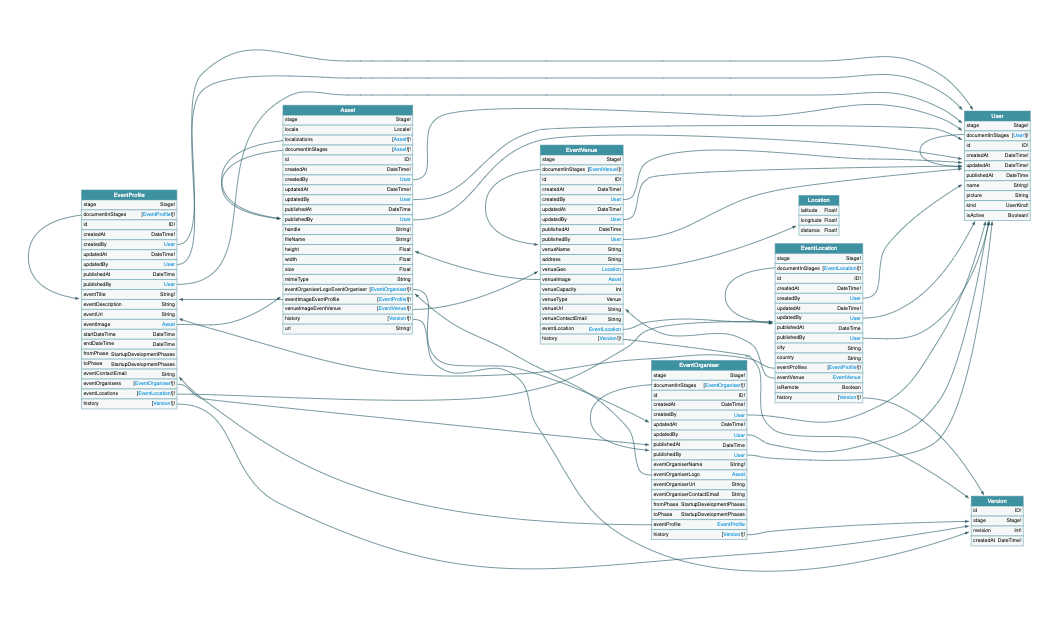
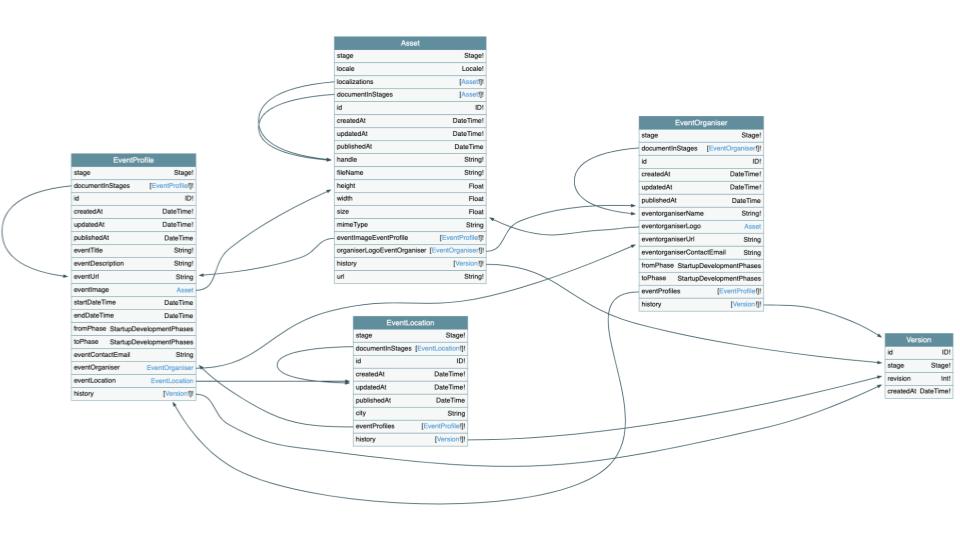
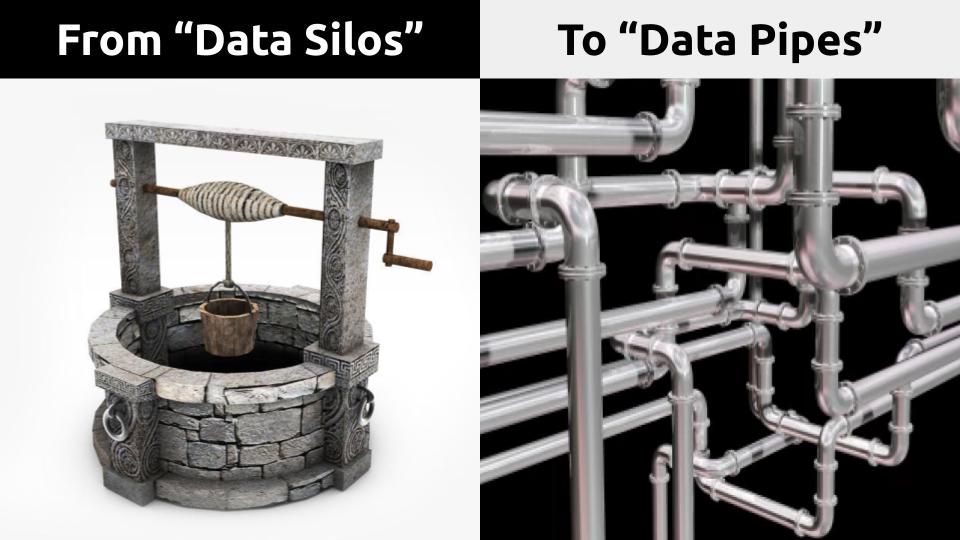

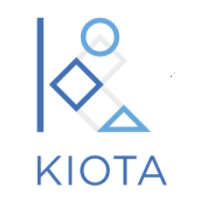
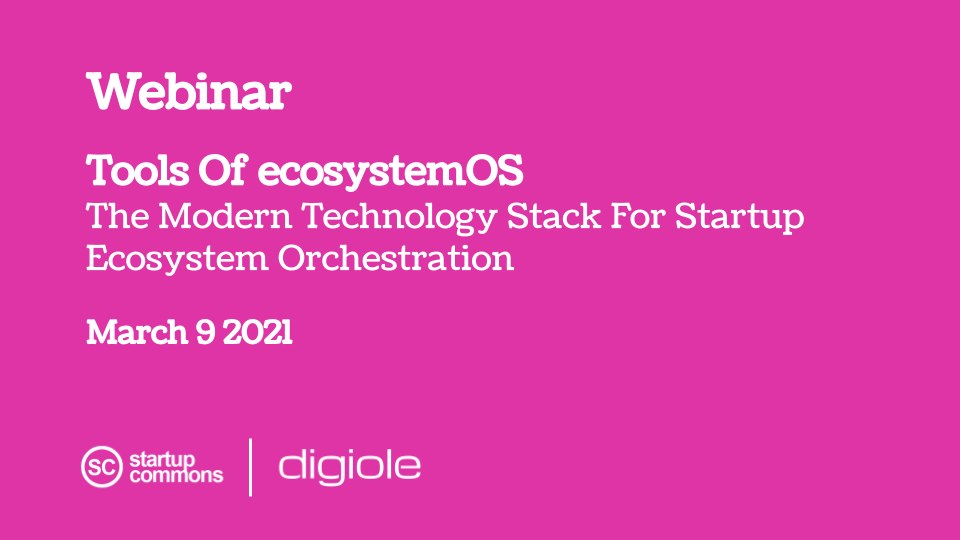

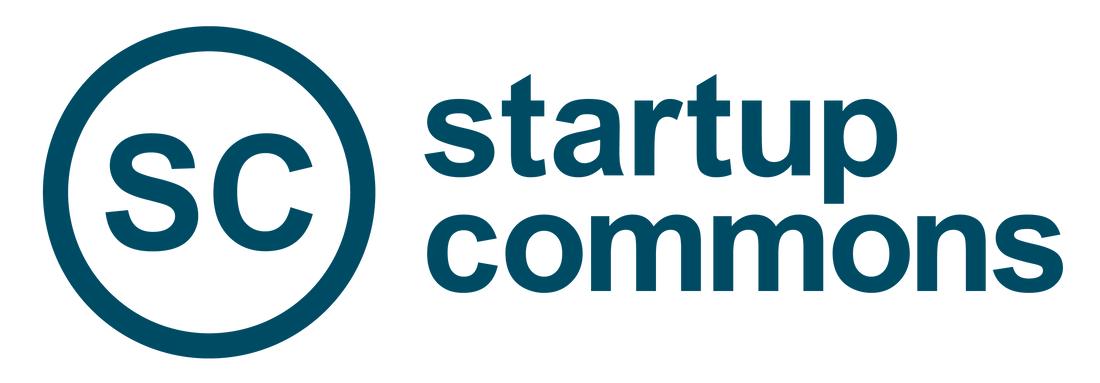

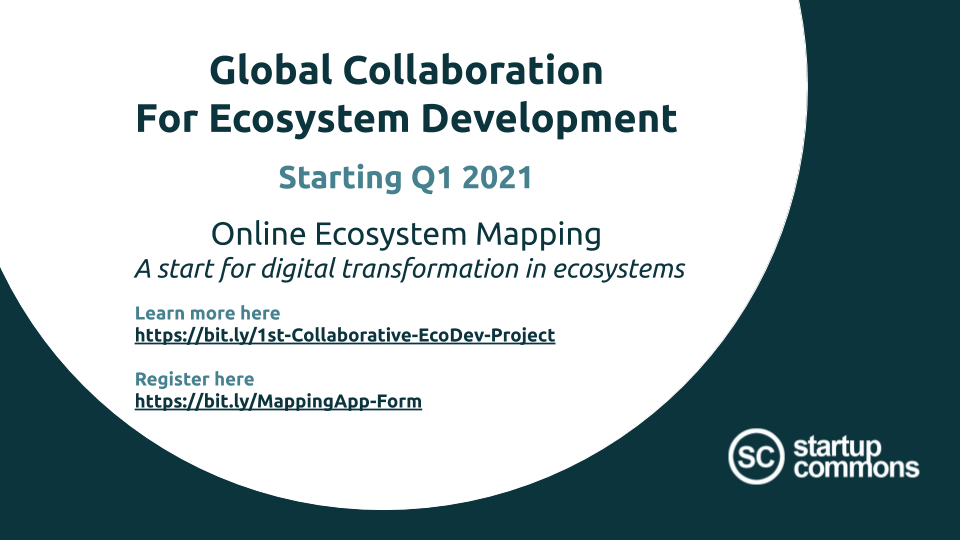
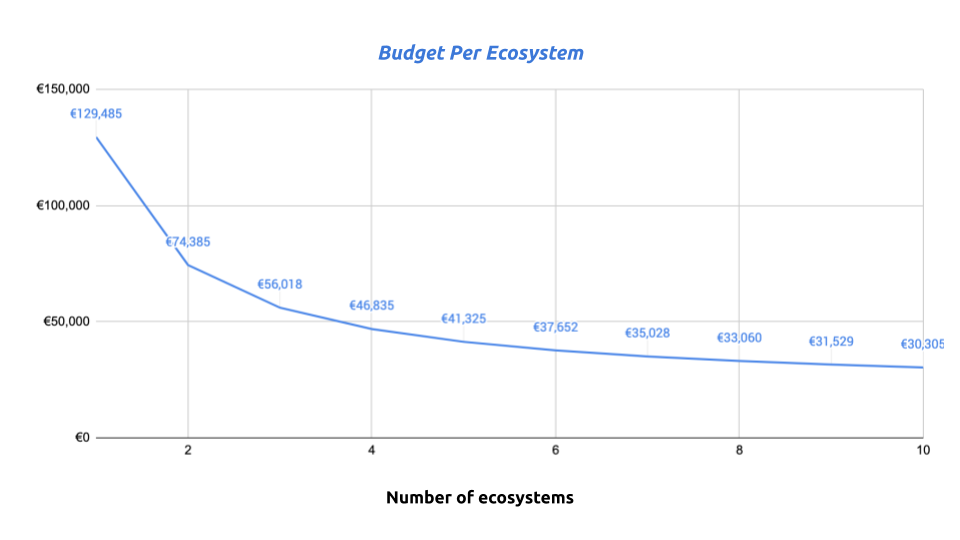

 RSS Feed
RSS Feed

